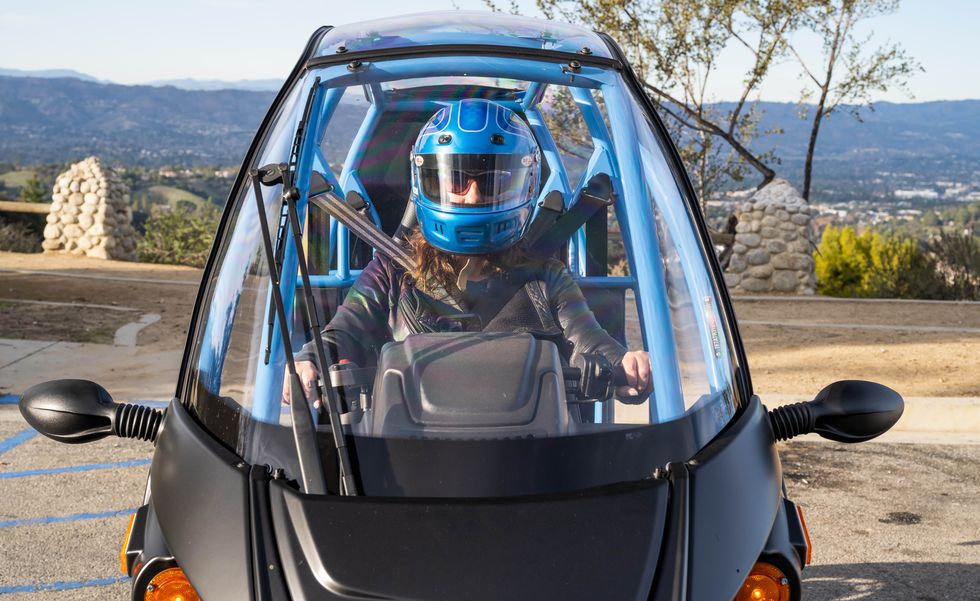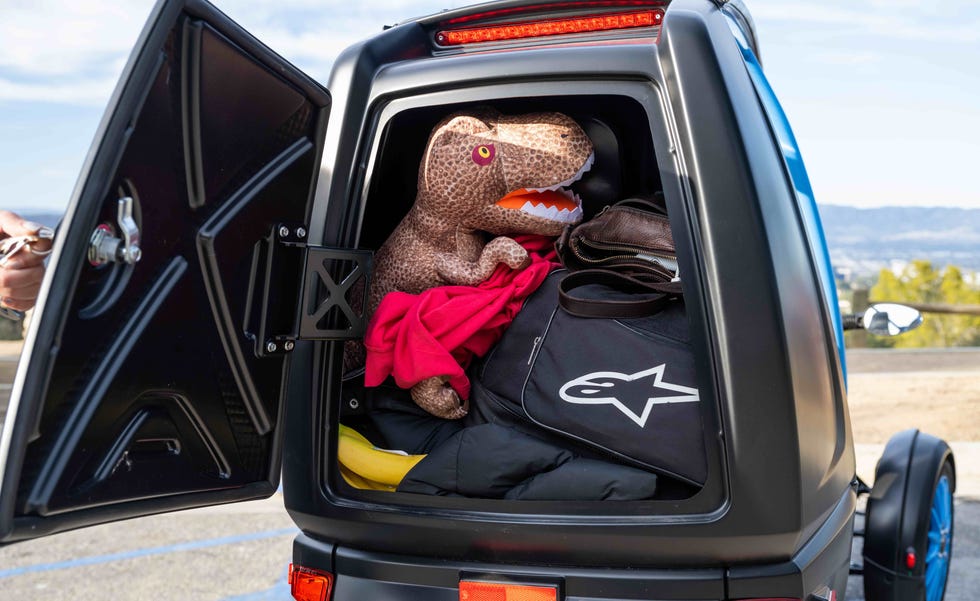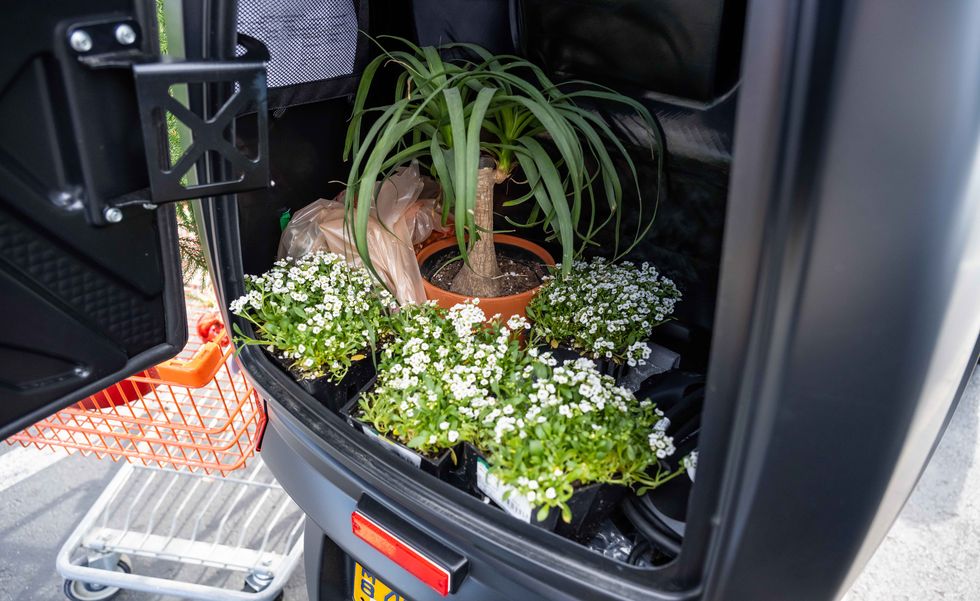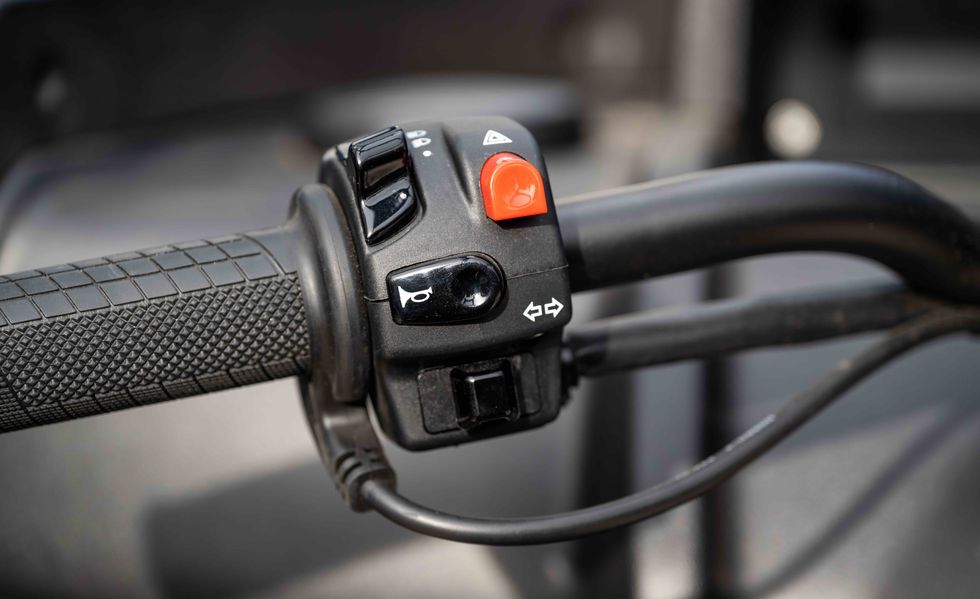Breaking the four-wheel hold on mainstream transportation has proven a challenge ever since we invented the wheel. Sure, the Roman chariots were fast, but have you not seen Ben Hur? Don’t you want a nice stable wagon instead? By the time we get to cars, quads are clearly in the lead, despite the fact that the smaller footprints of motorcycles would solve many of the traffic and resource issues that plague our crowded cities.
Enter the three-wheeler. I did, recently spending a month in an electric trike made by Oregon-based Arcimoto. If you’ve already read about my experience driving the Arcimoto FUV, you might have more questions about how it came to be and what Arcimoto’s goals are. I spoke to Jesse Fittipaldi, interim CEO of Arcimoto, about designing and driving a vehicle that’s neither car nor bike, but a bit of both.
C/D: What’s your background? Did you start Arcimoto? What’s the history of the company?
JF: Mark Frohnmayer founded Arcimoto in 2007, and between 2007 and 2015, he was prototyping a lot of different vehicles, testing out what a reverse trike should be, and what the problems are with them. He came up with what we call the Generation 8 Platform, which is what you were driving. I joined the company at the beginning of 2015, which is when we got funding to develop that Generation 8 prototype into a product. So I’ve been here building the company from a prototype company to production OEM electric vehicle manufacturing company.
What appealed to you about Arcimoto?
I met Mark, and we talked about what the future of autonomy does for transportation, and how the architecture of vehicles should change, or could change under that new paradigm, becoming efficient, with a small footprint, and really built for a purpose rather than, “How cool do I look?” Being part of a company that works on something meaningful was desirable. Hopefully we can show the world how you can create a really cool company doing a meaningful thing.
You said earlier was that there were a couple of challenges that were sort of inherent in making a reverse trike, which had to be kind of met before you felt that it was ready to go bigger. Can you give me just a brief overview of what some of those challenges were?
We really thought that a two-passenger vehicle was critical for mass adoption. And he form factors of the vehicles that we were prototyping before that were very automotive, traditional automotive in their style. Sort of like Elio or Solo. Pedals on the floor and steering wheel, and your legs spread forward. That created this very long vehicle. It created a vehicle that had a back seat that was difficult for people to get in and out of. And then once you were in the back seat, it was not comfortable, the experience was not preferable. Solving that was essentially changing from a steering wheel to a handlebar, and changing the ergonomics position of the passenger and the driver to sitting more upright, like you’re sitting in a camping chair. And that allowed the vehicle to become shorter, less material, less cost, and a passenger seat that was actually comfortable, and some would say fun. If you’re riding in the back seat of the FUV in Manhattan, that is an awesome experience.
Yeah, I took some passengers during the time that I had it. All of my neighbors wanted to go. Let’s talk a little bit about what the FUV looks like. I liked it, but it’s sort of dorky cool.
Yeah. Wait, don’t write down that I said “yeah,” like I was agreeing. I just meant I understand what you’re saying. [He laughs and mutters, “Dorky cool.”]
It’s a strange form factor, it is not something that people are used to seeing. And I think that it’s part of the appeal of it. I’m sure you experienced it while you were driving it; people do have a positive reaction to the vehicle.
I will say, as far as my experience with it, it was pretty much 100 percent people giving me thumbs up, even people in much cooler vehicles. I mean, whether or not they would purchase it themselves, I don’t know, but I did get a positive response from it while I was in it, which I was not expecting.
That’s awesome.
Let’s talk a little bit about safety. One of my concerns initially when it was dropped off was like, “Am I going to die testing this thing?” It doesn’t look as stable as it is, and it doesn’t look or feel very protective while you’re in it. Obviously, I did survive and I enjoyed it. But what do you say to people who are concerned about the safety?
The vehicle is a motorcycle, and that category has known safety issues. We went at it trying to address as many of those that we could in the design. Motorcycles lose traction easily in high speed braking, and you end up dumping the vehicle. We mitigated that by going with three wheels, and you have a superior braking experience. It’s controlled, if you do need to stop, and you won’t get ejected or fall down. The perspective of the driver relative to other drivers is better than a bike, being able to sit up higher, you’ll notice that if you ever look across at cars that are parked with you at an intersection, you’re head height with mid-sized SUVs. That gives you a better perspective of the road and also gives other people a better perspective of you. The visual experience of the vehicle is larger than motorcycle, so people can see you better. Then we’ve got the seatbelts for ejection; ejection is a major thing that you’re trying to avoid that is inherent in a two-wheel motorcycle. So just trying to reduce those types of experiences, or improve those experiences, that hopefully that gives us a good, safer vehicle.
You do offer optional doors, I saw that in the build sheets.
Yeah, we have half doors right now, and we’re working on full enclosure. Doors are difficult from an engineering and manufacturing perspective. There’s a joke in the auto industry that cars start with the design of the door. And we did not start with the design of the door. So we have a strangely-shaped cage where the geometry of it makes it challenging to make the dual doors work. There will probably be a revision to the cage design to enable full enclosure, but that just takes time and certification. We’re not at a massive scale yet, so we feel like we can support our production numbers delivering vehicles into areas where Jeep culture—open cabin—is a thing. So like, hey, in Hawaii I’m okay ripping around in a vehicle without doors on it.
From a business standpoint, what’s the percentage of personal sales compared to bigger rental, or tourist fleet sales?
I’d have to look up the exact number but I bet you 80 percent of our production goes to consumer.
I see a challenge for you guys is in the price [nearly $18,000 to start]. That is a lot of money for only a little bit more usability than a motorcycle. What are the thoughts on that? And are there plans to work on bringing the price down or do you feel like the benefits of the vehicle will support that price in a larger customer base?
I think that in the short term, we will have a consumer base for the price. People spend a lot of money on Harley-Davidson motorcycles. We’re squarely priced in that category. But for mass adoption the price needs to come down, for sure. But if you look at it from a financing standpoint, people pay 275 bucks a month. That doesn’t seem as much of a challenge for folks.
Are you driving one of these?
I do have a FUV, and its name is Milky, and it’s all white. I’ve been driving Milky for over a year and I have not driven my other vehicle—it’s a BMW—in so long that its battery is dead, and I have to figure out how to get it out of the parking garage.

Senior Editor, Features
Like a sleeper agent activated late in the game, Elana Scherr didn’t know her calling at a young age. Like many girls, she planned to be a vet-astronaut-artist, and came closest to that last one by attending UCLA art school. She painted images of cars, but did not own one. Elana reluctantly got a driver’s license at age 21 and discovered that she not only loved cars and wanted to drive them, but that other people loved cars and wanted to read about them, which meant somebody had to write about them. Since receiving activation codes, Elana has written for numerous car magazines and websites, covering classics, car culture, technology, motorsports, and new-car reviews.






